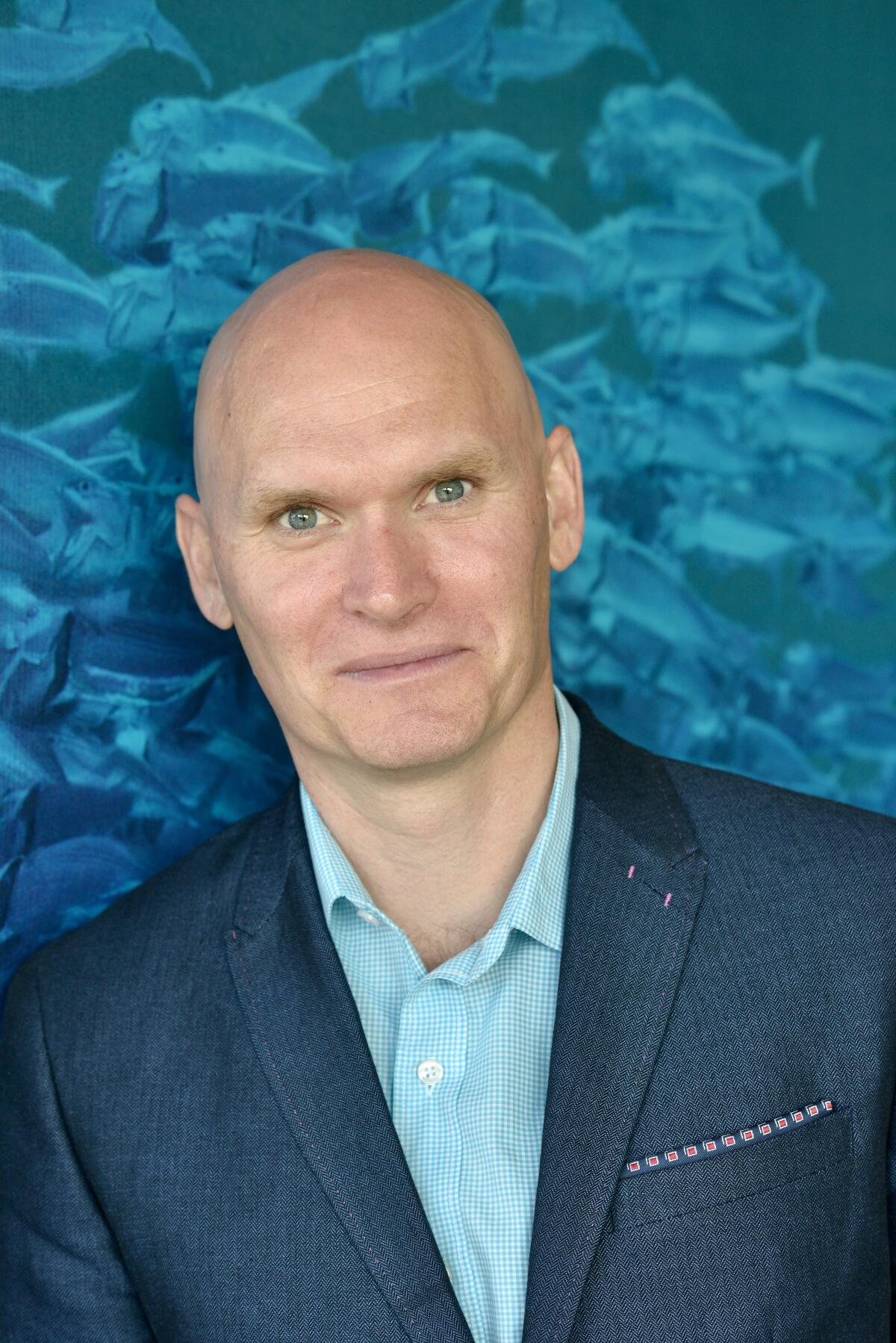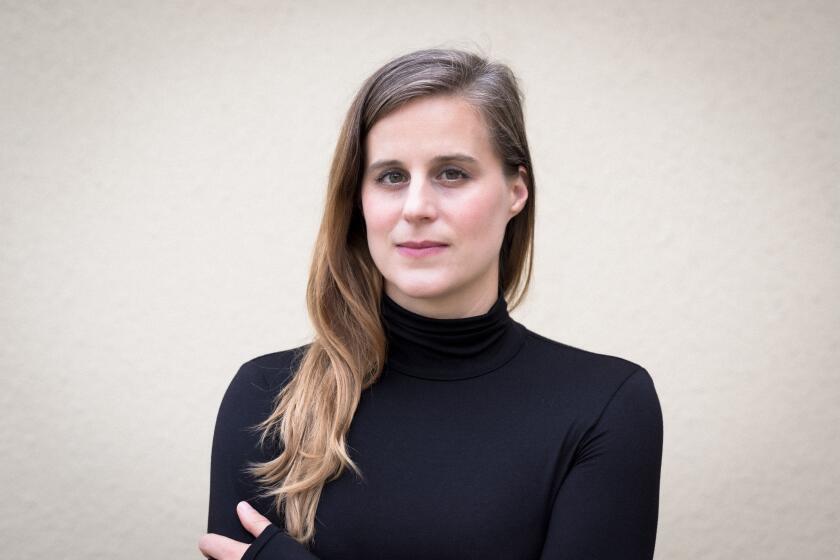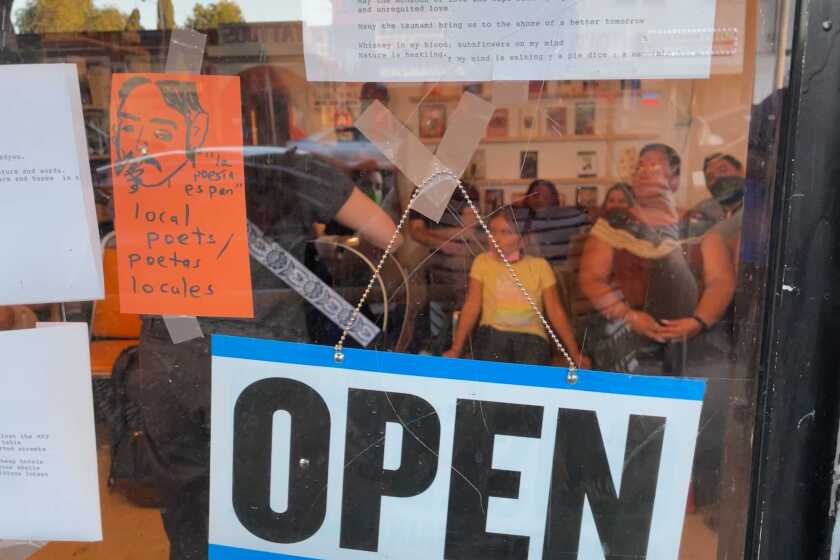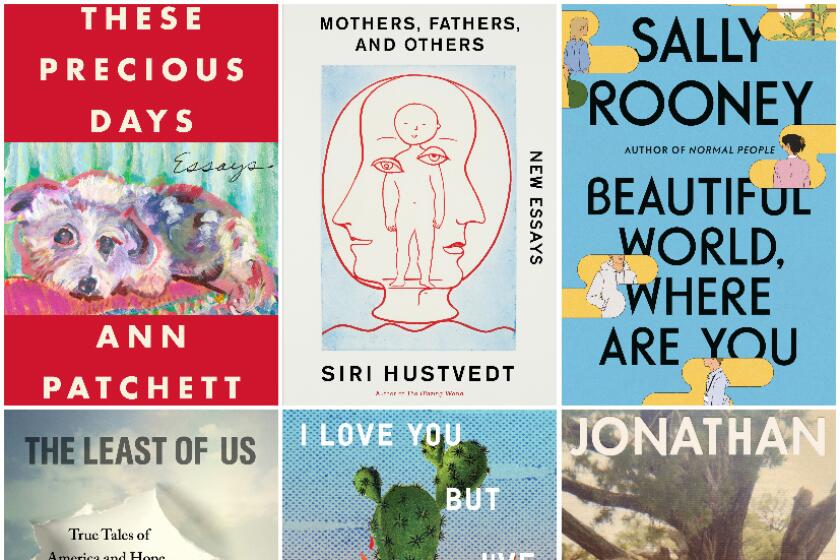Here are the finalists for the 2021 National Book Awards

- Share via
The finalists for the National Book Awards were announced today, with Lauren Groff, Anthony Doerr and Hanif Abdurraqib among the nominees for the prestigious literary prizes.
Featuring stories about a woman defying the medieval patriarchy, two enslaved Black men finding love and a young girl who finds freedom in books and art during the Syrian civil war, 25 works were chosen by the National Book Foundation on Tuesday in five categories: fiction, nonfiction, poetry, translated literature and young people’s literature.
Among the finalists are five authors and two translators previously recognized by the organization. Abdurraqib, a poet and cultural critic, made the nonfiction longlist in 2019; Doerr was a fiction finalist in 2014 for “All the Light We Cannot See,” which won the Pulitzer Prize; Natasha Wimmer was on the 2019 translation longlist and Leri Price was on that year’s shortlist; Groff had previously been a fiction finalist twice, in 2015 and in 2018; and Kekla Magoon was on the 2015 longlist for young people’s literature. All the poetry finalists are first-time honorees, and four of the 25 nominees are debut authors.
“The Prophets,” by Robert Jones Jr., depicts an intense bond between Isaiah and Samuel on a plantation in unbearable and untenable circumstances.
The winners will be announced at the 72nd National Book Awards ceremony Nov. 17. Last month the foundation announced that the event would be virtual for the second straight year.
Karen Tei Yamashita and Nancy Pearl also will be recognized with, respectively, the Medal for Distinguished Contribution to American Letters and the Literarian Award for Outstanding Service to the American Literary Community.
See the full list of finalists below:
Fiction
- Anthony Doerr, “Cloud Cuckoo Land”
- Lauren Groff, “Matrix”
- Laird Hunt, “Zorrie”
- Robert Jones Jr., “The Prophets”
- Jason Mott, “Hell of a Book”
In ‘Matrix,’ the acclaimed novelist fleshes out the life of a mysterious medieval nun to build a glorious fantasy of female authority freed from men.
Nonfiction
- Hanif Abdurraqib, “A Little Devil in America: Notes in Praise of Black Performance”
- Lucas Bessire, “Running Out: In Search of Water on the High Plains”
- Grace M. Cho, “Tastes Like War: A Memoir”
- Nicole Eustace, “Covered With Night: A Story of Murder and Indigenous Justice in Early America”
- Tiya Miles, “All That She Carried: The Journey of Ashley’s Sack, a Black Family Keepsake”
Poetry can spark conversations or social change. Five poets explain how they fell in love with the art form -- and how you can too.
Poetry
- Desiree C. Bailey, “What Noise Against the Cane”
- Martín Espada, “Floaters”
- Douglas Kearney, “Sho”
- Hoa Nguyen, “A Thousand Times You Lose Your Treasure”
- Jackie Wang, “The Sunflower Cast a Spell to Save Us From the Void”
Translated Literature
- Elisa Shua Dusapin, “Winter in Sokcho,” translated from French by Aneesa Abbas Higgins
- Ge Fei, “Peach Blossom Paradise,” translated from Chinese by Canaan Morse
- Nona Fernández, “The Twilight Zone,” translated from Spanish by Natasha Wimmer
- Benjamín Labatut, “When We Cease to Understand the World,” translated from Spanish by Adrian Nathan West
- Samar Yazbek, “Planet of Clay,” translated from Arabic by Leri Price
Sally Rooney, Anthony Doerr, Maggie Nelson, Richard Powers, Jonathan Franzen — the list goes on. Four critics on kicking off a big, bookish fall.
Young People’s Literature
- Shing Yin Khor, “The Legend of Auntie Po”
- Malinda Lo, “Last Night at the Telegraph Club”
- Kyle Lukoff, “Too Bright to See”
- Kekla Magoon, “Revolution in Our Time: The Black Panther Party’s Promise to the People”
- Amber McBride, “Me (Moth)”
More to Read
Sign up for our Book Club newsletter
Get the latest news, events and more from the Los Angeles Times Book Club, and help us get L.A. reading and talking.
You may occasionally receive promotional content from the Los Angeles Times.












